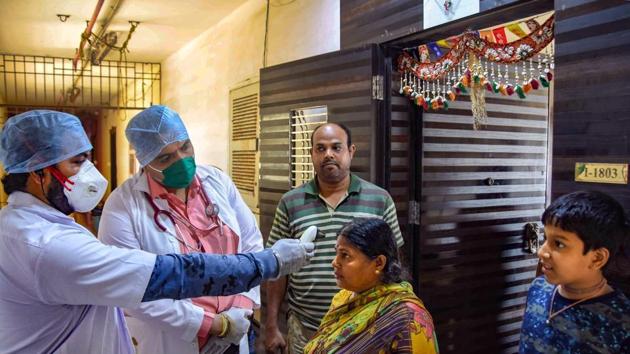CovidGYan portal launched by premier research institutes for latest information on coronavirus
The content in the portal, which is targeted towards general citizens and those with a scientifically curious mind, comprises latest research and up-to-date information on the pandemic, short videos or webinars in 12 languages on how to tackle the spread of novel coronavirus, and interviews with experts in the form of podcasts to understand various aspects of the Covid-19 outbreak.
With a rising number of Covid-19 cases in India and an overwhelming amount of information about coronavirus across various platforms, the country’s premier scientific institutes have launched a multi-institutional and multi-lingual science communication portal – CovidGyan (https://covid-gyan.in) – to filter out misinformation.

The initiative to create the website is led by the Tata Institute of Fundamental Research (TIFR), Indian Institute of Science (IISc) and Tata Memorial Centre (TMC) along with six other partners which include the Bangalore Life Science Cluster (comprising InStem and C-CAMP, in addition to NCBS-TIFR).
The content in the portal, which is targeted towards general citizens and those with a scientifically curious mind, comprises latest research and up-to-date information on the pandemic, short videos or webinars in 12 languages on how to tackle the spread of novel coronavirus, and interviews with experts in the form of podcasts to understand various aspects of the Covid-19 outbreak.
“The mandate of the CovidGyan initiative is to create, curate and communicate scientifically credible and authentic Covid-19-related content and resources,” said Professor Rajesh Gopakumar, centre director, International Centre for Theoretical Sciences, a TIFR centre in Bengaluru Bangalore.
The portal also dispels misinformation by presenting factual data through articles, colourful posters, infographics, FAQs and myth-busters.
“Reliable information based on science is an urgent need due to the infodemic of misinformation about Covid-19. This compels us to realise that, similar to climate change, ignoring science can quickly intensify problems to a global scale,” said Professor Arnab Bhattacharya, who leads the TIFR Mumbai science communication initiative Chai and Why?.
Partner institutions in CovidGyan initiative have diverse capabilities in scientific research, science communication, and science education. “It is extremely important to localise reliable scientific information, which takes into account the individual complexity of Indian conditions,” said Professor K. Subramaniam, director, Homi Bhabha Centre for Science Education.











